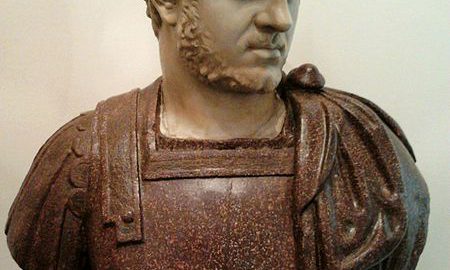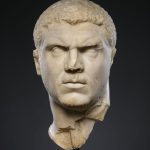The Edict of Caracalla, also known as Constitutio Antoniniana, was a document issued in 212 granting all free inhabitants of the Roman Empire (except peregrini dedicti1) rights Roman citizens. The name of the edict comes from Caracalla, meaning Marcus Aurelius Antoninus, Roman emperor credited with the document.
The catalog of the rights of Roman citizens consisted of:
- Right to vote (ius suffragii);
- The right to serve in the Roman legions (ius militiae);
- Election to state office (ius Honorum);
- Right to appeal to the public if the judgment rendered by a court seemed unfair (ius provocationis);
- Ownership (ius census).
The rights of Roman citizens, including the Edict of Caracalla, were originally reserved only for citizens of the city of Rome. From 89 BCE they were awarded to all free inhabitants of Italy. Citizenship was also held by the Romans living in colonies, cities outside Italy and provinces, and the rulers of allied countries. At the time of the promulgation of the edict, some of these powers, such as ius suffragii, were of purely historical significance. Provocatio ad populum (appeal to the people on the death sentence) has been replaced by an appeal to the emperor.
The emperor justified his move with religious arguments (gaining the favour of the gods). The then historian Cassius Dio attributed to the edict only fiscal motivations (the extension of taxes imposed on Roman citizens to the majority of the population without exempting it from existing benefits). However, it should be remembered that Dion was extremely hostile to Caracalla and could have deliberately coloured his message.
Another purpose of the edict is the need to increase the number of men who can join the army. Only soldiers with full citizenship could fight in the legions.







